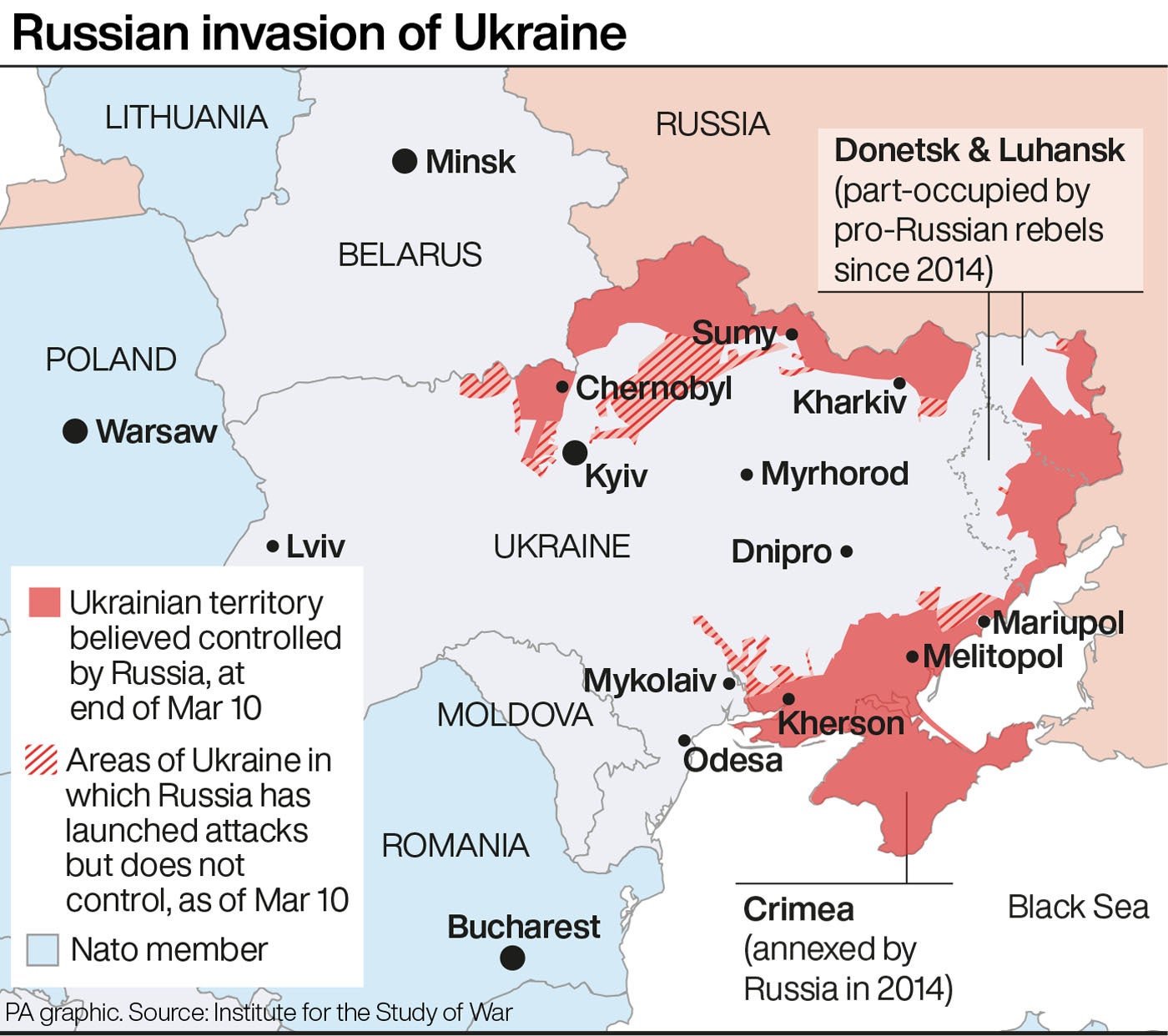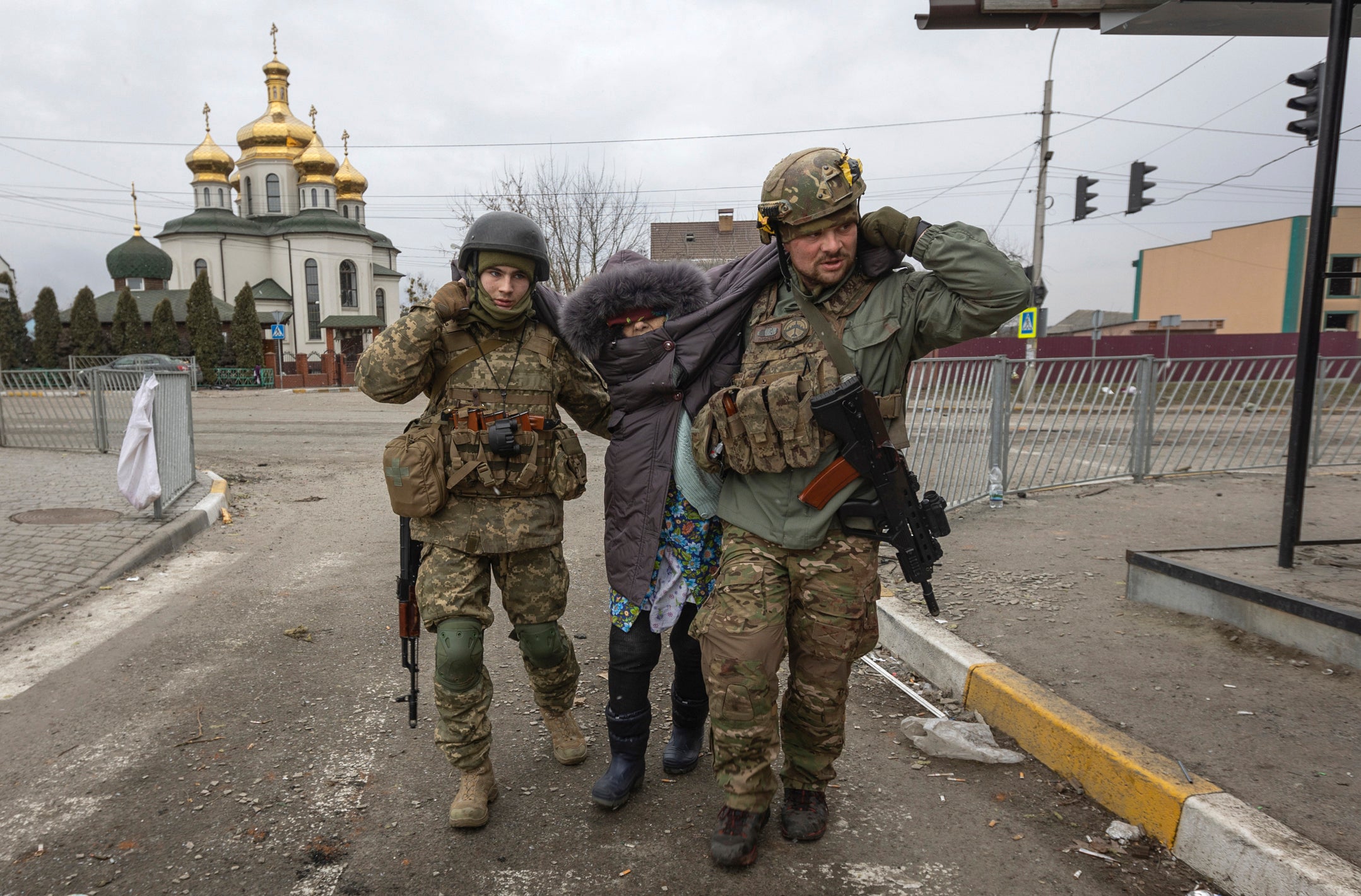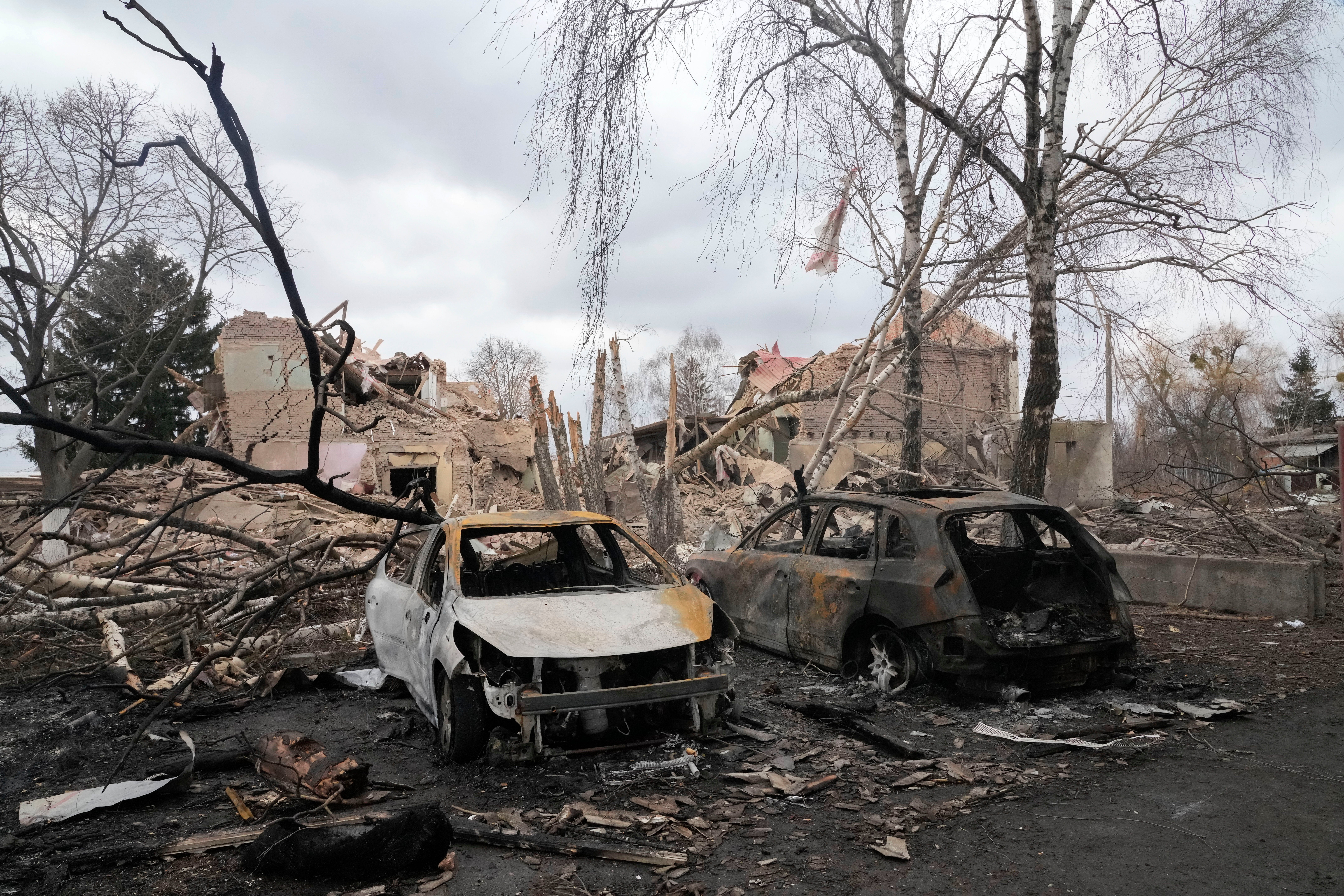Ukraine invasion has already caused £91bn in damage after two weeks, says Kyiv
Deputy economy minister Denys Kudin said three-quarters of businesses in war-struck areas have stopped operating
Your support helps us to tell the story
From reproductive rights to climate change to Big Tech, The Independent is on the ground when the story is developing. Whether it's investigating the financials of Elon Musk's pro-Trump PAC or producing our latest documentary, 'The A Word', which shines a light on the American women fighting for reproductive rights, we know how important it is to parse out the facts from the messaging.
At such a critical moment in US history, we need reporters on the ground. Your donation allows us to keep sending journalists to speak to both sides of the story.
The Independent is trusted by Americans across the entire political spectrum. And unlike many other quality news outlets, we choose not to lock Americans out of our reporting and analysis with paywalls. We believe quality journalism should be available to everyone, paid for by those who can afford it.
Your support makes all the difference.Russia’s invasion of Ukraine has already caused £91bn ($119bn) worth of damage to the country’s economy in just two weeks.
Deputy economy minister Denys Kudin said on Friday that three-quarters of businesses in war-struck areas have now stopped operating.
He added that metal exports - which count for a “significant share” of Ukraine’s overall exports - are down as most metallurgical enterprises in eastern Ukraine were not working.
Mr Kudin’s warning about the economy comes just a day after the chief economic adviser to Ukrainian president Volodymyr Zelensky said that the war has caused half of Ukrainian businesses to shut down completely.
Oleg Ustenko told an online event hosted by the Peterson Institute for International Economics that Ukraine’s economy was “very depressed”.
He added: “Currently around 50 per cent of businesses are not operating and the rest are not operating at full capacity.”
Mr Ustenko added that Russian forces have so far destroyed at least £76bn ($100 billion) worth of infrastructure, buildings and other physical assets.
He said the estimate was “very approximate” and includes physical infrastructure that has been targeted by Russian bombing campaigns such as roads, bridges and hospitals.
Mr Ustenko was asked how a reconstruction effort in the country could be financed and said it could come from Russian assets that are frozen throughout the world due to Western sanctions.
He also said that the seized assets of wealthy Russian oligarchs could also be transferred to a reconstruction fund for the country.

Asked about the resilience of Ukraine’s financial system, and bank payment operations, Ustenko said: “Look, we are doing, I would say, OK under the current circumstances.”
Despite some pressure on the hryvnia currency, Ukrainians in areas not occupied by Russian forces are still able to access cash via ATMs and supermarket cashiers without the long lines seen in the first two days of the war, and credit card and other electronic payment systems are working normally, he added.

“Even in those cities surrounded by now by the Russian army... (residents) are able use their cards,” Ustenko said.
The economic pain in the conflict is also being shared by Russia who have been hit by the plethora of sanctions from the US, UK, EU and some Asian countries.
The restrictions - that have included targeting the country’s oligarchs and banning Russian banks from the Swift banking system - have caused severe economic pain for Russia, with the rouble having now lost 40 per cent of its value.
Vladimir Putin’s spokesperson Dmitry Peskov, told reporters on Thursday. “Our economy is experiencing a shock impact now and there are negative consequences. They will be minimised.”

“This is absolutely unprecedented. The economic war that has started against our country has never taken place before. So it is very hard to forecast anything.”
IMF managing director Kristalina Georgieva said that the sanctions imposed on Russia had caused an abrupt contraction of the Russian economy.
She said on Thursday the country now faced a “deep recession” this year and that a default by Russia on its debt was no longer seen as “improbable.”
The Independent has a proud history of campaigning for the rights of the most vulnerable, and we first ran our Refugees Welcome campaign during the war in Syria in 2015. Now, as we renew our campaign and launch this petition in the wake of the unfolding Ukrainian crisis, we are calling on the government to go further and faster to ensure help is delivered. To find out more about our Refugees Welcome campaign, click here. To sign the petition click here. If you would like to donate then please click here for our GoFundMe page.

Join our commenting forum
Join thought-provoking conversations, follow other Independent readers and see their replies
Comments